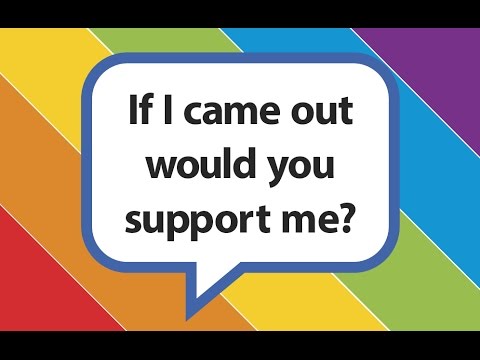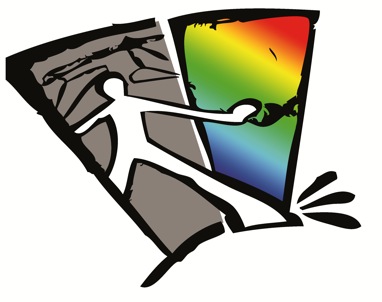
For many people the thought of coming out as gay to family, friends and workmates is terrifying. You may have spent many years acting against your true feelings. Hiding your emotions, acting in ways that make you feel an imposter and judging yourself as inferior, are all too common traits for the majority of people struggling with their sexual orientation.
Not only do these feelings inhibit our growth as human beings, they have severe side effects on our overall mental state to. We tend to disassociate ourselves with our true identity, this make life more manageable. It’s like tuning out the background noise on a busy street, you start to lead a double life in essence.
It can be painful to keep significant aspects of our self-hidden or to vigilantly separate aspects of our self from others. Constant hiding creates difficulties in accurately assessing other people’s perceptions of oneself, as well as recognising one’s own strengths. Dissociation’s impact on self-esteem can also make it difficult to feel one’s actual accomplishments as reflections of one’s own abilities. In some extreme cases this disassociated state leads to people becoming gay-haters or even gay-bashers.
Depression, anxiety and social withdrawal are all too common and, in some case, these thoughts of self-worth and disassociated states can lead to suicide.
So, what can I do to come out?

Coming out is the most commonly shared cultural experience that defines modern gay people today. “Coming Out” was an ironic reference to debutantes. Now it has far more reaching implications.
Years spent “in the closet” can make the prospect of revealing oneself an emotionally charged experience. However, the process is not just about revealing oneself to other, in coming out, gay people integrate, as best they can, their dissociated aspects of themselves. It’s about coming out to one’s self first, being comfortable with how you feel.
Coming out to oneself is a subjective experience of inner recognition. It is a moment that is sometimes charged with excitement and at other times with trepidation. It is a realisation that previously unacceptable feelings or desires are part of one’s self. It is, in part, a verbal process, putting into words previously unarticulated feelings and ideas. Some people describe it as a switch being turned on. “Coming home” or “discovering who I really was” It can be exhilarating to come out in new and faraway places where one is not known to either family or friends. After making such a move, some people may completely (and perhaps disassociate) sever relationships with their past lives and feelings.
Coming out to oneself may be followed by coming out to others. Such revelations are not always greeted with enthusiasm, and fear of rejection often plays a significant role in a person’s decision about who to tell. The majority of the time, family and friends will share your honesty and will be happy for you and the more people you tell people the more support you will receive and the easier it will become.
But I still don’t feel comfortable, what do I do?

Speak to someone who understands your struggle, your closest friend, one of your siblings or even someone who is gay in your network. If you still cannot find anyone in your network of family and friends seek out a gay friendly professional councillor or therapist. A therapis is actually easier to talk to as they will not judge you or make you do anything you are not comfortable with. A therapist’s recognition and respect for individual differences allows multiple possibilities in the coming out process. There is no one single way to come out. A therapist fluent in the process of coming out can point out both obstacles to and inhibitions of the process.
Gay patients face a whole set of decisions unlike anything heterosexuals face. Hiding from oneself depends upon dissociative defences, while coming out to oneself holds the possibility of psychological integration. An implicit value of psychotherapy is that integration is more psychologically meaningful than dissociation.
In Summary, coming out offers gay people the possibility of integrating a wider range of previously split-off affects and emotions, not just their sexual feelings. Greater ease in expressing yourself, both to you and to others, this can lead to an enormous enrichment of your work and relationships. To many, such activities result in a more productive and enhanced life.
Get in touch with Change Central. Why Change Central? Our therapist Paul truly understands your struggle, having worked with many clients on this subject for many years.

